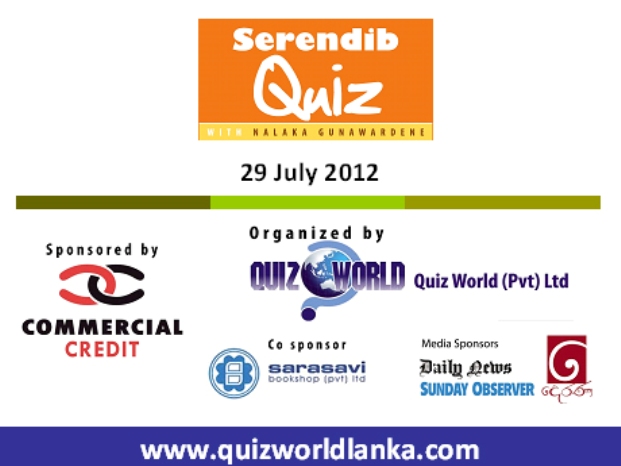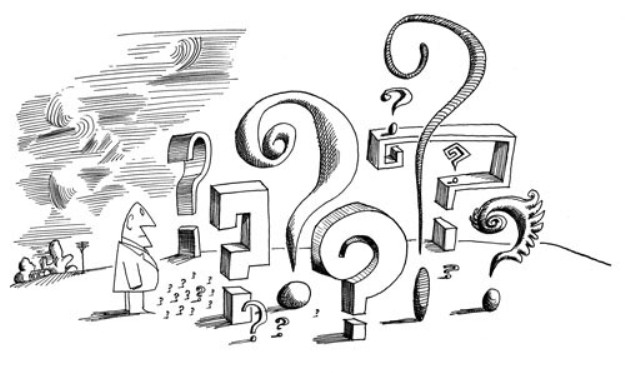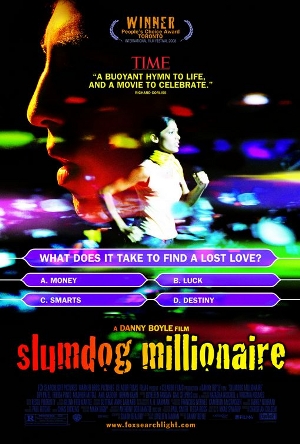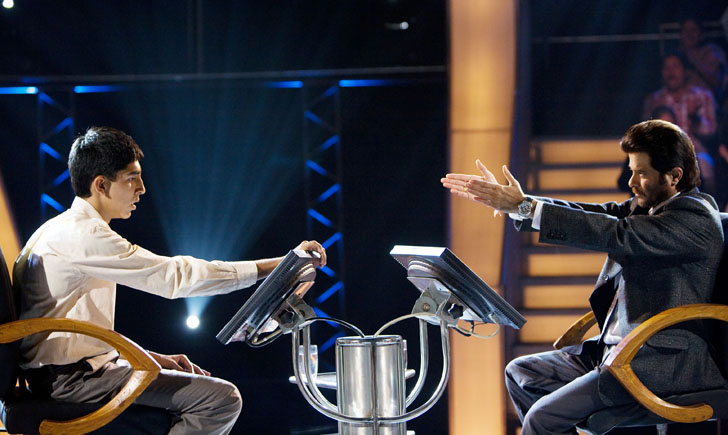I look at general knowledge quizzing in Sri Lanka in this week’s Ravaya column (in Sinhala).
It’s a mind sport where I have played all the roles possible — as a participant, Sri Lanka’s national quiz champion, quiz compiler, quizmater, quiz programme designer for radio and TV, and chronicler of the game.
I covered similar ground in English in this column written in Aug 2012:
When Worlds Collide #27: Who Wants to be…a Quizmaster?
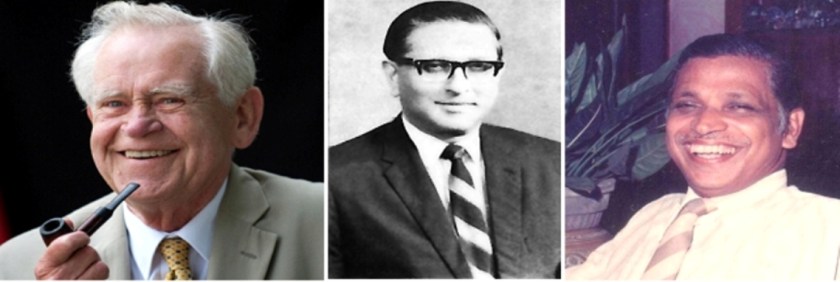
ඔබ දන්නෙහිද (Do You Know) හෙවත් දැනුම මිනුම (quiz) තරගාවලි දශක ගණනාවක් තිස්සේ අපේ පාසල් සිසුන් අතර ජනපි්රයයි. සූක්ෂම හා ඉලක්කගත ලෙසින් දැනුම හා මතකය උරගා බලන මේ මනෝමය කී්රඩාව ලිහිල් මට්ටමින් හෝ බැරැරුම් ලෙසින් හෝ කළ හැකියි.
පාසල් සිසුන් ලෙස මේ කී්රඩාවේ දස්කම් පෑ සමහරුන් පසු කලෙක වෘත්තීය ක්ෂෙත්රයන්හි හපනුන් බවට පත් වුණා. ශී්ර ලංකාවේ ලලිත් ඇතුලත්මුදලි 1950 ගණන්වල රේඩියෝ තරග ජය ගත් අතර අමෙරිකාවේ හිලරි ක්ලින්ටන් (එවකට හිලරි රෝඩම්) 1960 දශකයේ ටෙලිවිෂන් තරගවල තරුවක් වුණා.
ශී්ර ලංකාවේ ඔබ දන්නෙහිද මනෝ කී්රඩාවේ ආරම්භය හා මුල් යුගය ගැන මා තොරතුරු සොයනවා. (ඔබ දන්නා තොරතුරු ඇත්නම් ලියා එවන්න: contact details) මගේ මතකයට එන පැරණි ම තරගාවලි පැවැත්වුණේ එවකට අපට තිබූ එක ම රේඩියෝ ආයතනය වූ ගුවන්විදුලි සංස්ථාවේ නාලිකා හරහායි.
සිංහලෙන් ‘ඕවල්ටීන් පැන පොඩි’ හා ඉංගී්රසියෙන් ‘Take it or Leave It’ යන සතිපතා තරගයන්ට 1970 දශකයේ සවන් දුන් මා, 1980 සිට මේ ක්ෂෙත්රයේ තරග කරන්නට පටන් ගත්තා. එවක් පටන් අද වන තෙක් මේ මනෝ කී්රඩාව මගේ ප්රධාන විනෝදාංශයයි. එහි හැම ඉරියව්වක හා මට්ටමක ම මා කි්රයා කොට තිබෙනවා.
ශී්ර ලංකාවේ ප්රවීණ ප්රශ්න විචාරකයන් දෙදෙනෙකු සමඟ වැඩ කිරීමෙන් මා අත්දැකීම් ලැබුවා. මුලින් ඔවුන්ගේ ප්රශ්නවලට මුහුණ දුන් පාසල් සිසුවකු ලෙස ඔවුන් හදුනා ගත් මා, ඉනික්බිති ඔවුන් සමඟ ප්රශ්න සම්පාදනය හා ඉදිරිපත් කිරීමට සහායකයකු ලෙස සම්බන්ධ වුණා.
මෙයින් පළමුවැන්නා දක්ෂ ගුරුවරයකු හා විදුහල්පතිවරයකු වූ ෂෙල්ටන් වීරසිංහ සූරීන් (1923 – 1985). රිච්මන්ඞ් හා වෙස්ලි විදුහල්වල අධිපති ලෙස සේවය කළ ඔහු කී්රඩා, සංගීත, ශාස්තී්රය හා පරිපාලන ක්ෂෙත්රවල කුසලතා තිබූ අයෙක්.
රූපවාහිනී නාලිකාව 1982 පෙබරවාරි 15දා අරඹා දින කිහිපයක් තුළ විකාශය ඇරැුඹි මෙරට පළමුවැනි ටෙලිවිෂන් ඔබ දන්නෙහිද වැඩසටහන් මාලාව වූ Dulux Do You Knowහි ප්රශ්න විචාරකයා වුණා. ඔහුට මුහුණ දුන් මුල් ම පාසල් සිසුන් හය දෙනා අතර සිටි මා එයින් ජයග්රහණය කළා.
වීරසිංහයන් උද්යෝගීමත්, විනෝදකාමී හා ප්රතාපවත් චරිතයක්. මවුබස ඉංගී්රසිය වූ අයට පවා ආදර්ශයට ගත හැකි තරම් විශිෂ්ඨ ඉංගී්රසි උච්චාරණයක් ඔහුට තිබුණා. එහෙත් කලූ සුද්දකු වනවා වෙනුවට ඔහු ලාංකික උරුමය අගය කළ අයෙක්.
කලාකාමී පරපුරකින් ආ ගුණරත්න අබේසේකර (1934 – 1992) සූරීන් රජයේ පරිපාලන තනතුරක් දරණ අතර රේඩියෝ මාධ්යයේ හපන්කම් කළ අයෙක්. සහජයෙන් ම මිත්රශීලි හා සිනාබරිත වූ ඔහු, පෞරුෂයෙන් වීරසිංහට වඩා වෙනස් වූවත් මුහුකුරා ගිය පෙරඅපර දෙදිග පිළිබඳ දැනුමක් ඔහුට ද තිබුණා.
මෙරට ටෙලිවිෂන් ඉතිහාසයේ මුල් ම සිංහල ඔබ දන්නෙහිද වැඩසටහන් මාලාව වූ ‘සොයමු පිළිතුරු’ 1984 සම්පාදනය කොට ඉදිරිපත් කළේ ඔහුයි. එම ශූරතාවලිය දිනූ ආනන්ද විද්යාලයීය කණ්ඩායමේ නායකයා වූයේ මායි.
මේ දෙදෙනා ම තමන් විසින් සම්පාදිත ප්රශ්න තමන්ට ම ආවේණික ශෛලියකින් විමසුවා. ප්රශ්න විචාරයේ ප්රශස්තම අදියර එයයි. එහෙත් නිතර කැරෙන්නේ කවුරුන් හෝ සම්පාදනය කර දුන් ප්රශ්න ගොන්නක් නිවේදන/කථන හැකියාව ඇති අයකු විසින් විමසීමයි. එහිදී අර්ධ වශයෙන් නිවැරදි හෝ ආසන්න හෝ පිළිතුරක් දුන්නොත් එය බාර ගන්නවා ද නැද්ද ආදී තීරණ ගැනීම අපහසු වනවා.
පාසලෙන් නික්ම ගිය පසු මේ දැවැන්තයන් දෙදෙනාගේ ප්රශ්න සම්පාදනයට හා තොරතුරු ගවේෂණයට මා ස්වේච්ඡාවෙන් සම්බන්ධ වුණා. පුඵල් වූත් ගැඹූරු වූත් දැනුම් සාගරයෙන් තොරතුරු උකහා ගෙන, නිරවද්යතාවය මුඵමනින් තහවුරු කොට එය රසවත්, කෙටි පැනයක් බවට පත් කිරීම මා උගත්තේ මේ දෙදෙනාගෙන්. එය ආයාසයෙන් ප්රගුණ කළ යුතු කලාවක්.
එසේ ම රේඩියෝ හා ටෙලිවිෂන් හරහා ප්රශ්න විචාරීමේදී සුහදශීලී සංයමයක් හා සියඵ තරගකරුවන් වෙත උපේක්ෂා සහගත ආකල්පයක් පවත්වා ගත යුතුයි. ඇතැම් තරගකරුවන් නොදන්නාකමට කියන විකාරරූපී හෝ අභව්ය පිළිතුරුවලට පවා ප්රශ්න විචාරක නොසැලී සිටිය යුතුයි.
විද්යා-කලා ක්ෂෙත්රවල පුඵල් දැනුමක් තිබුණත් මහාචාර්ය නන්දදාස කෝදාගොඩ සූරීන් ප්රශ්න විචාරන විට වැරදි පිළිතුරු ඔහුට ඉවසා දරා ගන්නට බැහැ. එබදු පිළිතුරු ඔහු නොරිස්සුම් ස්වරයෙන් ඇතැම් විට කෝපාන්විතව බැහැර කළා. මෙය විද්යුත් මාධ්ය කලාවට ගැලපෙන්නේ නැහැ. ප්රශ්න විචාරකයා දැනුම ගවේෂණයේ මිත්රශීලි මාර්ගෝපදේශකයකු විය යුතුයි.
විවිධ හා විචිත්ර ප්රශ්න විචාරකයන්ගේ ශෛලීන් හා ශිල්පක්රම සමීපව අධ්යයනය කරමින් සිටි මට, එය අත්හදා බලන්නට අවස්ථාවක් ලැබුණේ 1990දී. රූපවාහිනීයේ මුතුහර ළමා සාමාජිකයන් අතර සතිපතා පැය බාගයේ පැන විසදුම් තරගාවලියක් වසරක් පුරා ඉදිරිපත් කිරීමට නිෂ්පාදිකා ලලිතා සිරිබද්දන මහත්මිය මට ඇරැයුම් කළා.
එවිට මගේ වයස 23යි. ඒ දක්වා රේඩියෝ-ටෙලිවිෂන් ප්රශ්න විචාරකයන් හැටියට කි්රයා කොට තිබුණේ මැදිවියට පත්, ඉස නිකට පැසුණු උදවිය. මා වැනි තරුණයකුට තමන් ම ප්රශ්න සම්පාදනය කොට ඒවා විමසන්නට හැකි වේදැයි සමහරුන් විමතියට පත් වුණා. එහෙත් පටිගත කිරීම් වලට පෙර මගේ ප්රශ්න විමර්ශනයට කළ ඉල්ලීම් මා බැහැර කළා.
ප්රශ්න විමසන්නට පෙර ඒවා දැන සිටියේ මගේ සහායකයා ලෙස කි්රයා කළ (දැන් වෛද්ය) චතුර රත්නායක හා මා පමණයි. දේශපාලනික හා ආගමික තේමාවන් ඕනෑකමින් මඟ හැර, අන් සියඵ දැනුම් ක්ෂෙත්රයන් ආවරණය වන පරිද්දෙන් අප ප්රශ්න සම්පාදනය කළා.
පැන විමසීමේදී මා තෝරා ගත්තේ ගුණරත්න අබේසේකරයන්ට සමාන ශෛලියක්. එනම් ප්රශ්නයේ යම් පසුබිම් තොරතුරු ද ලබා දෙමින් එය විමසීම. මේ නිසා පැය බාගයකදී ඇසිය හැකි ප්රශ්න ගණන තරමක් සීමා වෙතත්, උඩින් පල්ලෙන් හරසුන් ලෙස තොරතුරු මතු කිරීම සමනය වනවා. අද දක්වාත් රේඩියෝ, ටෙලිවිෂන් හා සජීව සභාවලදී මා අනුගමනය කරන ශෛලිය මෙයයි.
ඔබ දන්නෙහිද යනු අද වන විට මනෝමය කී්රඩාවක් ලෙස ලොව පුරා පිළිගෙන ව්යාප්ත වී තිබෙනවා. එය චෙස්, සුදෝකු ආදිය තරම් ම ප්රකට නොවූවත් උද්යෝගිමත්ව එහි නියැලෙන තරගකරුවන් හා කණ්ඩායම් සිටිනවා. ඔවුන්ට ම වෙන් වූ තරගාවලි හා ජාත්යන්තර මට්ටමේ ශූරතාවලියක් ද තිබෙනවා. මෙය පාසල් හෝ සරසවි සිසුන්ට සීමා වන්නේ නැහැ. විවිධ වයස් මට්ටම්වලට අයත්, විවිධ වෘත්තීන්හි නිරත වන අය මේ මනෝ කී්රඩාවේ යෙදෙනවා.
මේ ක්ෂෙත්රය හරිහැටි නොදන්නා අය සිතන්නේ පැන විසදීම් බුද්ධි මට්ටම උරගා බලන බවයි. එහෙත් බුද්ධිය මනින බුද්ධි පරීක්ෂණ (IQ tests) ඊට වෙනස්. ඔබ දන්නෙහි ද කී්රඩාවලට යම් බුද්ධි මට්ටමක් අවශ්ය බව සැබෑයි. එහෙත් ඊටත් වඩා ප්රයෝජනවත් වන්නේ රට හා ලෝකය ගැන පුඵල් වූ දැනුම සහ එය ඉක්මනින්, නිරවුල්ව සිහිපත් කිරීමේ හැකියාවයි.
මේ නිසා ඔබ දන්නෙහි ද තරගාවලි ප්රවර්ධනයට අයින්ස්ටයින්, මාරි කියුරි, තාගෝර් වැනි ලෝ ප්රකට බුද්ධිමතුන්ගේ මුහුණත් යොදා ගැනීම සංකල්පමය වශයෙන් වැරදියි. එසේ ම මේ මනෝ කී්රඩාවේ ඉහළට යන්නට උසස් අධ්යාපනයක් තිබීම උපකාරී වූවත් එය අත්යවශ්ය නැහැ.
බි්රතාන්යයේ ඉතා ජනපි්රය, 1972දී ඇරැඹී අද දක්වා වාර්ෂිකව පවත්වන BBC Mastermind ටෙලිවිෂන් තරගාවලිය 1980දී ජය ගත්තේ ටැක්සි රියදුරෙක්. ආචාර්ය, මහාචාර්ය හා විවිධ වෘත්තිකයන් අභිබවා මේ පුද්ගලයා ඉදිරියට ගියේ කියැවීමේ නොතිත් ආසාව හා පුරුද්ද නිසායි.
Mastermind වැඩසටහන් මාලාව 1972 – 1997 වකවානුවේ වසර 25ක් ඉදිරිපත් කළෙ මැග්නස් මැග්නසන් (Magnús Magnússon) නම් ප්රවීණ ප්රශ්න විචාරකයායි. ප්රශ්න සම්පදානයට ඔහු විවිධ ක්ෂෙත්රවල ප්රබලයන් සම්බන්ධ කර ගත්තා.
ඉතා තියුණු තරගයකින් පසු බි්රතාන්යයේ මහ මොළකාරයා ලෙස තේරෙන ජයග්රාහකයාට ලැබෙන්නේ කීර්ති නාමය හා වීදුරු පලිහක් පමණයි. එදත් අදත් මුදල් ත්යාග පිරිනැමෙන්නේ නැහැ.
එහෙත් බි්රතාන්යයේත්, වෙනත් රටවලත් ලොකු මුදල් ත්යාග සහා කැරෙන ඔබ දන්නෙහිද තරගාවලි තිබෙනවා. 1964දී ඇරැඹී තවමත් දිවෙන අමෙරිකානු ටෙලිවිෂන් තරගාවලිය Jeopardy! හා 1989දී බි්රතාන්යයේ අරඹා අද වන විට ලෝකයේ රටවල් 100කට පමණ ව්යාප්ත වී ඇති Who Wants to be a Millionaire (සිංහලෙන් – ඔබ ද ලක්ෂපති මම ද ලක්ෂපති) මේ අතර වනවා.
මුදලට දැනුම හෑල්ලූ කළ යුතු ද යන්න මේ ක්ෂෙත්රයේ දිගු කලක් පවතින විවාදයක්. ඔබ දන්නෙහි ද කී්රඩාවේ දශක තුනකට වැඩි කාලයක් සම්බන්ධ වූ මගේ මතය නම් එහි වරදක් නැති බවයි.
කි්රකට් වැනි කී්රඩාවලත් මේ විවිධත්වය තිබෙනවා. කිසිදු මුදලක් නොපතා කී්රඩා කිරීමේ සිට 20-20 හා IPL බදු අධික තරග මුදල් හා කී්රඩක ගෙවීම් කරන තැන දක්වා පරාසයක් පවතිනවා.
මනෝ කී්රඩාවකත් මේ පරාසයට ඉඩ දිය යුතුයි. එහෙත් කී්රඩාවේ ප්රමිතීන්, සාරධර්මයන් රැකෙන පරිදි හා වංචාවලට ඉඩ නොලැබෙන පරිදි එය පවත්වා ගැනීම ඔබ දන්නෙහිද ක්ෂෙත්රයට ඇලූම් කරන, එහි නියැලී සිටින අප කාගේත් වගකීමක්.
දකුණු ආසියාවේ මේ කී්රඩාවේ ඉදිරියෙන් ම සිටින්නේ ඉන්දියානුවන්. 1967දී කල්කටාවෙන් ඇරැඹුණු මේ රැල්ල අද ඉන්දියාව පුරා පැතිර ගිහින්. ප්රාන්ත මට්ටමින් හා ජාතික මට්ටමින් වාර්ෂිකව පැවැත්වෙන තරගාවලි තිබෙනවා. බංග්ලාදේශයේ හා පාකිස්ථානයේ ද මේ කී්රඩාව පුඵල් මට්ටමෙන් කැරෙනවා. මේවායේ මුල් තැන ගන්නේ පාසල් සිසුන් නොව සරසවි සිසුන්, ඇදුරන්, වෘත්තිකයන් හා වෙනත් වැඩිහිටියන්.
1990දී ශී්ර ලංකා ජාතික ශූරයා ලෙස මා සාර්ක් තරුණ ශූරතාවලියට පාකිස්ථානයේ ඉස්ලාමාබාද් නුවරට ගියා. (මා ශී්ර ලංකාව නියෝජනය කළ එක ම අවස්ථාව ද එයයි.) අපේ කලාපයේ ලොකු රටවල ඔබ දන්නෙහිද කී්රඩාව කෙතරම් සංවිධානාත්මක ලෙස සිදු වනවා ද යන්න ගැන එහිදී මට දැකිය හැකි වුණා.
1990 පටන් මා විවිධ රේඩියෝ හා ටෙලිවිෂන් තරගමාලා සම්පාදනය කොට මෙහෙයවා තිබෙනවා. අද දරුවන්ට හා තරුණ පරපුරට පෙර පරම්පරාවලට වඩා දැනුම් ගවේෂණයට මූලාශ්ර හා තාක්ෂණයන් තිබෙනවා. ඒ වුණත් ලෙහෙසියෙන් තොරතුරු සොයා ගන්නට හැකි වූ පමණට සැළසුම්ගත වූ දැනුම වර්ධනය වන්නේ නැහැ.
ප්රශ්න විචාරකයකු හැටියට මට හමු වන සමහර තරගකරුවන් අවබෝධයකින් තොරව වට්ටෝරුගත දැනුම කටපාඩම් කළ අයයි. තරග විභාගයකට මුහුණ දෙන ආකාරයට මේ මනෝ කී්රඩාව කරන්නට බැහැ. (ශබ්දකෝෂ කට පාඩම් කරන අයට ලේඛකයන් වන්නට බැහැ වගෙයි!)
නිරවුල් අවබෝධයකින් හා සැබෑ උද්යෝගයකින් දැනුම සොයා යාම ඔබ දන්නෙහිද ජයග්රහණයට එදත් අදත් අත්යවශ්ය ගුණාංගයක්.
